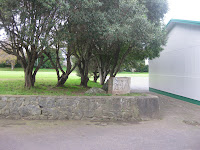- care for their children.
- love their children.
- keep their children safe.
- provide healthy food for their children.
- provide their children with a good education.
- help their children learn about the world by going places and doing things together.
- correct and discipline their children so they know what is right and wrong.
- teach their children how to look after themselves when they grow up.
Parents should teach their children so that:
- their children don't get into fights or end up doing bad things like stealing.
- the children know what is right and wrong.
- their children learn how to make the right decisions or choices in life.
- that their children will become independent.
- that the children will be able to take care of their own possessions.
- that the children are disciplined.
We think parents are very important. We couldn't be without them!
Thank you to all our mums and dads and caregivers. We love you!
What a good parent is
Parents are adults that are mums and dads. Good parents teach you good words. They taught you since you were little but they never taught you bad words.
Parents were the ones who made you. You mother gave birth to you. Your mum and dad are the ones who looked after you wile you were little and grew bigger.
HG, Year 4
What a good parent is
Parents are adults who have children or a child.
Good parents teach their children/child how to grow up. Your parents even take care of you, fed you when you were a baby and even changed your nappies. That's hwy your parents are good.
I like good parents because they are good to us.
KL, Year 3
What is a good parent?
Parents are adults who have children. A good parent is comeone who teaches you good things like how to eat, drink, write and talk. That's why we have good parents. Our parents have looked after us from when we were small. I think I know a lot about parents.
TP, Year 4
What a good parent is
Parents are adults who have children.
If you didn't have parents you would probably not get food.
Parents are special because they look after us and they give birth to us, love us and care for us.
I think that parents are very nice.
RD, Year 4
What a good parent is
Parents are people who have children.
Parents are to help children learn how to do things such as teaching them how to talk. They discipline and teach children many more things too. Some children can go to school and some can't so some kids learn words from their mums and dads and caregivers like grandparents, aunties, uncles, sisters and brothers and other caregivers.
I think parents are important because if there child steals something from the shop they will be worried as their child didn't do the right thing.
JT, Year 5



















